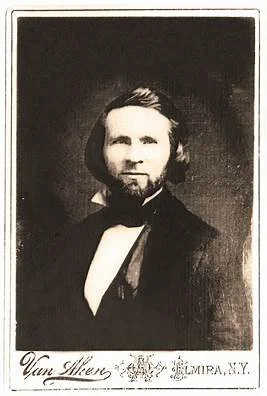March is
Developmental Disabilities Awareness Month
Cover photo: Rick Guidotti and POSITIVE EXPOSURE
CP Awareness Month
MEET DR. KIP GUJA
“I am a radiologist and nuclear medicine physician with cerebral palsy. Advocating for physicians with disabilities enhances health care by creating a more inclusive and diverse environment while promoting empathetic patient care by physicians with unique perspectives and insights into the health care experience. I hope that my story might help inspire and encourage both patients and future physicians with disabilities.” – Kip Guja, MD, PhD, Clinical Instructor, Radiology, Rad Nuclear Medicine at Stanford
A member of SMADIE, Dr. Guja participated in a Positive Exposure photo exhibit of healthcare workers with disabilities to decrease stigma and enhance disability visibility in medicine.
What is SMADIE?
SMADIE, Stanford Medicine Alliance for Disability Inclusion and Equity started as an Employee Resource Group (ERG) at Stanford Medicine, and its scope and mission now extend globally and well beyond the initial ERG. SMADIE's priorities are CHARME: promoting Community, Health Equity, Advocacy, Research, mentorship and Education in medicine.
and
Cerebral Palsy Awareness Month
Improving Independent Living Outcomes for Adults with I/DD
…The Role of Oral Health and Wellness Devices and mHealth Applications. Independent living represents a pivotal milestone for adults with intellectual and developmental disabilities (I/DD), providing opportunities for autonomy, personal growth, and community integration. However, the transition to independent living often involves navigating challenges related to health maintenance, daily routines, and access to resources…
Lights, Camera, Advocacy
Dr. Rebecca Kronk, PhD, MSN, CRNP, FAAN CNE, ANEF: “Youth with disabilities (YWD) rarely have the same opportunities to engage in science, technology, engineering, arts, and math (STEAM) focused opportunities through creative avenues such as acting, set design, directing and stage management. Launched in 2019, STAGES II A Theater Program for Youth with Disabilities has provided participants an opportunity to engage in theater arts and expression that can help amplify personal development and strengthen self-advocacy.”
Dementia Capable Care, IDD, and The Importance of Essence
Kathleen M. Bishop, Ph.D.: “When an older adult with IDD exhibits signs of loss and changes compared to lifelong personality, behavior, and capacity, it is essential a differential diagnosis is conducted to determine possible underlying cause(s) for the decline or change in behavior. Too often, loss in older adults, especially adults with Down syndrome, is assumed to be a result of Alzheimer’s disease or another type of dementia. This is an assumption that should never be made!”
Services for People With Intellectual & Developmental Differences
Dr. Janice Ryan, OT, HSDP: “Healthcare historians now say, “the world as we knew it shut down” in March 2020. Less than one and a half years later in October 2021, my company and I signed a program development contract with the CEO of a large organization that serves individuals with intellectual and developmental disabilities (IDD) over the lifespan. That was when I began learning firsthand… why so many people believed it would be impossible for me to deliver on my contract.”
MORE FROM THE STACKS
The Mental Health & Developmental Disabilities (MHDD) ECHO is a virtual learning network that will explore increasing access to evidence-based mental health and developmental disability services in communities where people live. Participants will learn how to increase collaboration within multidisciplinary teams, support communities of practice, and explore best practices that improve the quality of life for people with IDD and co-occurring mental health issues.
The National Council on Independent Living Endorses Helen Journal
The National Council on Independent Living (NCIL), headed by Executive Director Theo Braddy, is the longest-running national cross-disability, grassroots organization run by and for people with disabilities. Founded in 1982, NCIL represents thousands of organizations and individuals including: individuals with disabilities, Centers for Independent Living (CILs), Statewide Independent Living Councils (SILCs), and other organizations that advocate for the human and civil rights of people with disabilities throughout the United States.
PAOH President’s Letter: Why Create Awareness?
Steven Perlman, DDS, MScD, DHL (hon), PAOH President: “For individuals with Intellectual and Developmental Disorders, having these comorbidities and/or secondary conditions only adds insult to injury to their burden of disease. It also negatively impacts their ability to access and receive quality healthcare.”
Dr. Woodward's Aphorism: Ode to Strange and Unfamiliar Hoofbeats
Rick Rader, MD, FAAIDD, FAADM, Editor-in-chief, Helen Journal: “The idea that a zebra could serve to encourage me to provide some musings about ways in which we can improve the clinical outcomes of people with intellectual disabilities could have some of you scratching your heads…But it wasn't the song or the newsclip that encouraged me to say, '‘Oh yeah, the old zebra lesson.'‘“
Raising Awareness for Cerebral Palsy
Cerebral Palsy Guidance: “March marks Developmental Disabilities Awareness Month, a time dedicated to fostering understanding, inclusion, and advocacy for individuals with developmental disabilities, including cerebral palsy (CP). As one of the most common motor disabilities in childhood, CP affects movement, muscle tone, and posture due to abnormal brain development or damage before, during, or shortly after birth. Raising awareness about CP is crucial to ensuring early intervention, access to resources, and fostering a more inclusive society.”
Unlocking Behaviors: Symptoms of Anxiety
Ley Linder, MA, M. Ed, BCBA and Craig Escudé, MD, FAAFP, FAADM: Charlie is a 64-year-old gentleman with a history of hypertension, Type 2 diabetes mellitus, severe intellectual disability, and anxiety. He lives in a group home with two other gentlemen and has around-the-clock support staff in the home. He doesn't use words to communicate, but he can often indicate his wants and needs through gestures or specific behaviors that people who know him understand. “
Dr. P.H. Skinner: Controversial Educator of the Deaf, Blind and Mute…
Michael B. Boston, PhD: “We first encounter Skinner in 1856 in Washington, D. C., when he appeared in Washington with five children who were deaf, blind or mute.2 He had brought these children with him from Canada via New York State. They were the children of fugitive slaves and had been born in Canada. When he came to Washington, Skinner had plans for establishing a school for deaf, blind and mute children.”
Problems for Women With Disabilities Receiving Breast Cancer Preventative Practices
Breast cancer has become the most diagnosed cancer in women in recent years, and, aside from the obvious health problems, there still seem to be external challenges women with breast cancer face, but invasive medical treatments are one of the most common ones. Such exams, like mammography screenings, can create discomfort and fear among women, which could lead to a refusal of such a practice. Concerningly, medical literature has shown that women with disabilities have worse screening rates of cancer-preventative practices when compared to women with no disabilities.
FROM THE STACKS
Doctors Restore Sight in Blind Children with Groundbreaking Gene Therapy: In a groundbreaking medical first, doctors have restored vision in children who were born almost completely blind. Four young children with a rare inherited eye disorder gained meaningful sight after a single gene therapy treatment.

















